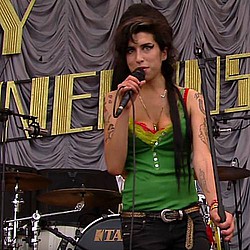In this week's Billboard cover story some of musics biggest stars talk about Amy Winehouse's lasting legacy, tragic end and eye-opening new documentary.
In Winehouse's story, many of the perils of 21st-century fame collide. She was hounded not only by paparazzi -- the famously aggressive British tabloids painstakingly tracked her movements around her London home -- but by talking heads insensitive to addiction and mental-health issues. One disturbing sequence in the film shows Winehouse as a punchline for talk-show hosts. "She was ill. You had people who had praised her and now they were murdering her," says Darcus Beese, president of Island Records and Winehouse's former A&R man. "Hopefully, when they see their faces on the screen they'll feel embarrassed."
Sam Smith on how Winehouse impacted his career:
"Her song 'You Sent Me Flying' is the reason why I sing," Smith tells Billboard. "At 11 years old I was belting out 'F--- Me Pumps' and soaking in all the language and honesty."
Her friend and co-manager Nick Shymansky & former band member Dale Davis on who is to blame for Amy's death:
"There was a huge chain of selfishness and negligence around Amy," says Shymansky. "I remember an expert saying on the news that she could drop dead at any minute. But there were still gigs being booked. I would never have anything to do professionally with someone in that state." Says Davis: "The finger can be pointed at certain people, but in many respects we can all be blamed. I've gone through all those feelings myself. I would have had to be there 24 hours a day to try and help."
Davis on speaking to Amy hours before she died:
A few hours before she died, Winehouse spoke to Davis on Skype. "She said, 'I've been watching videos of myself on YouTube, and I can sing,' " he recalls. "And I said, 'Of course you can sing!' There had been doubts, but for her to realize that was one of the nicest things she could possibly say."
Director of 'Amy' Asif Kapadia on making the film:
The film is a riveting collage of audio interviews and mostly unseen footage. It took the filmmakers two years to win the trust of Winehouse's friends, many of whom hadn't spoken publicly since her death. "At the beginning nobody wanted to talk to me," says Kapadia. "Then everybody did." Only Mitch Winehouse has since criticized the project, calling it "unbalanced." Gay-Rees says that the initial three-hour cut was "too painful to watch." Even the final 128-minute version is overwhelmingly sad. Says Shymansky: "You see this happy, witty spark of an artist and then this desperately high, lost, overexposed, overharassed wreck of a person."
Amy Winehouse news










